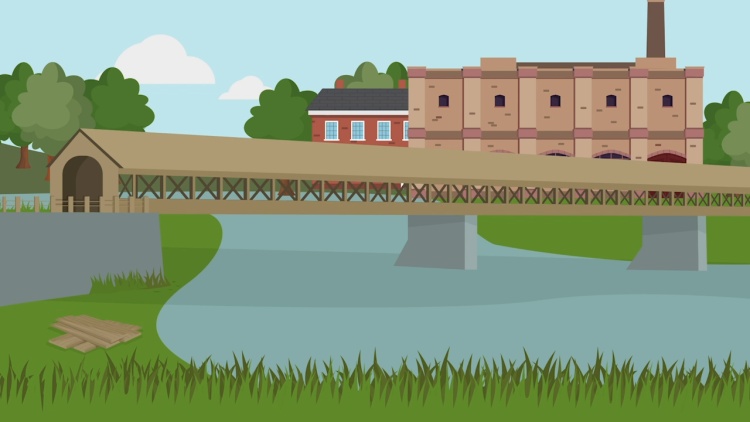Young v. City of Chicopee
Supreme Judicial Court of Massachusetts
186 Mass. 518, 72 N.E. 63 (1904)

- Written by Christine Hilgeman, JD
Facts
Young (plaintiff) entered into a written contract with the City of Chicopee (City) (defendant) for repair of a wooden bridge over the Connecticut River. The contract provided that Young would replace the decayed wood with “sound material, securely fastened.” The contract also provided that Young would be compensated according to the amount of new material he installed into the bridge. In order to minimize the interference with public travel while the work was being done, the contract required Young to place at least one-half of the material needed for the repairs on the job site. In compliance with this provision, Young had placed lumber along the bridge and on the river banks. During the course of Young's work, a fire occurred on the bridge without fault of either party. The fire destroyed the bridge so that the contract could not be performed. The fire also destroyed the unused lumber on the job site. Young commenced an action against City to recover for the work and materials he had furnished pursuant to the contract and to recover for the destroyed unused lumber. At trial, the City did not deny its obligation to pay for labor and materials actually expended in repairing the bridge prior to the fire. However, the parties disagreed as to whether the City was liable for the lumber that was lost in the fire because it was on site in preparation for repairing the bridge but had not yet been used for the repair. The jury returned a verdict in favor of Young. City appealed to the Supreme Judicial Court of Massachusetts.
Rule of Law
Issue
Holding and Reasoning (Hammond, J.)
What to do next…
Here's why 910,000 law students have relied on our case briefs:
- Written by law professors and practitioners, not other law students. 47,100 briefs, keyed to 997 casebooks. Top-notch customer support.
- The right amount of information, includes the facts, issues, rule of law, holding and reasoning, and any concurrences and dissents.
- Access in your classes, works on your mobile and tablet. Massive library of related video lessons and high quality multiple-choice questions.
- Easy to use, uniform format for every case brief. Written in plain English, not in legalese. Our briefs summarize and simplify; they don’t just repeat the court’s language.





